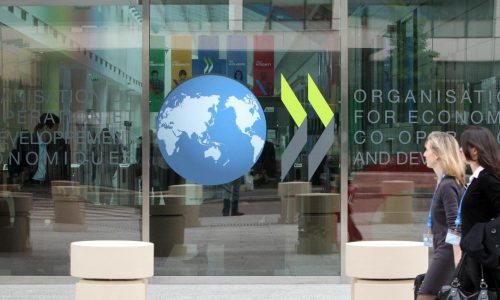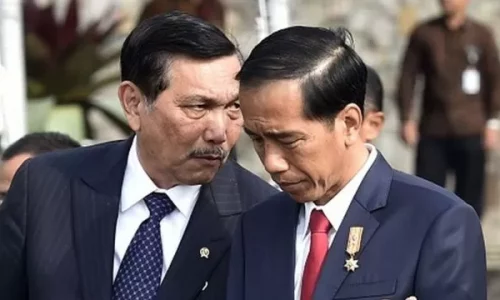Amalya Reza Oktaviani, Program Manager for Bioenergy at Trend Asia, has suggested that bioenergy is not the primary solution for a just energy transition, even considering it as a false one.
Amalya said observations by Trend Asia suggested that bioenergy is not the solution because the claims of carbon neutrality cannot be justified. While particularly criticizing the implementation of bioenergy through co-firing wood pellet biomass and coal in power plants, she pointed out that the utilization of bioenergy, from land clearing to its use as fuel, still resulted in emissions.
“The claims of carbon neutrality from biomass co-firing are inaccurate and should be corrected by the government,” she stated.
According to Amalya, the application of co-firing is also feared to extend the life of coal-fired power plants with high emissions. The call to continue co-firing is contradictory to efforts to retire coal-fired power plants.
Based on Trend Asia’s calculations, the government’s plan to implement co-firing in 52 power plants by 2025 will result in a surplus of 26.48 million tons of carbon emissions.
Amalya mentioned that several coal-fired power plants, which should have been closed due to their age, such as Paiton, Suralaya, and Ombilin, are still operational because they implement co-firing and are considered contributors to renewable energy.
Moreover, to meet the biomass needs for co-firing, it requires production from energy plantation forests (HTE), which involves clearing natural forests.
On the other hand, the government targets 10 percent co-firing in 52 power plants. This means that 10.2 million tons of biomass are needed as a coal mixture.
To meet this target, more than 6 million hectares of HTE are needed, which will inevitably lead to deforestation. Aside from emitting emissions, clearing land also affects the lives of indigenous peoples or local residents.
Amalya mentioned that indigenous communities have become victims of land clearance on Siberut Island in Mentawai. The construction of three small-scale power plants on Siberut Island has resulted in deforestation of indigenous forests, changes in the traditional production patterns of indigenous communities, and threats to food security and local culture.
Currently, there are still 19,000 hectares of HTE permits, most of which are still natural forests. The co-firing practice at the Indramayu 1 power plant is exacerbating the negative impact on local residents.
Amalya stated that many rice fields and plantations have been damaged, and marine yields have decreased. In addition, respiratory and vision problems due to the power plant’s smoke affect the surrounding communities.
However, on the other hand, presidential hopefuls still continue their believes in the positive affects of bioenergy.
Presidential hopefuls’ views on bioenergy in Indonesia
Anies Baswedan – Muhaimin Iskandar:
Anies-Muhaimin National Election Winning Team emphasizes a focus on energy transition, particularly through the program “Indonesia Menuju EBT” (Indonesia Towards Renewable Energy). The transition will involve energy diversification, including bioenergy.
Anies Baswedan’s vision for bioenergy goes beyond specific plant sources like palm oil, aiming for a broader blueprint that encompasses various biomass sources. The program envisions the active involvement of all segments of society, especially vulnerable communities, women, people with disabilities, and children, in the policy-making and implementation processes.
Prabowo Subianto – Gibran Rakabuming Raka:
The campaign team for Prabowo Subianto and Gibran Rakabuming Raka envisions an increased focus on bioethanol sources as part of a clean energy transition, utilizing crops like cassava and sugarcane.
This commitment aligns with Prabowo’s long-standing advocacy for the development of bioethanol, aiming to achieve energy independence and support the sugar commodity industry. The initiative is seen as complementary to existing projects like food estates and is expected to create high-employment opportunities.
Prabowo-Gibran’s campaign team also acknowledges the importance of other clean energy sources, such as solar and geothermal power, considering economic competitiveness. They recognize the need for realistic approaches and are preparing budgetary schemes from the state budget (APBN) to support the development of such technologies.
Ganjar Pranowo – Mahfud MD:
The campaign team for Ganjar Pranowo and Mahfud MD has outlined a specific program focused on renewable energy, namely the implementation of self-sufficient energy villages. Ganjar–Mahfud MD aims to develop mini-hydro or micro-hydro power plants in rural areas. These small-scale power plants, utilizing water from irrigation channels, rivers, or waterfalls, are considered a source of clean energy.
The team emphasizes the potential of mini-hydro energy sources, particularly in Kalimantan, and the utilization of other local renewable energy sources such as solar energy. The plan involves the active involvement of local communities, and the implementation is expected to be accelerated, especially if coupled with the local production of lithium batteries. Additionally, the campaign team highlights the use of energy derived from animal waste, which has already been implemented in certain areas of Central Java. This involves converting animal waste into gas using relatively simple technology.
These positions from the presidential candidates reflect varying strategies and priorities in promoting bioenergy and renewable energy sources within the context of Indonesia’s energy transition. Each candidate envisions a role for bioenergy, but the specific approaches and emphasis differ based on their respective campaign narratives.







